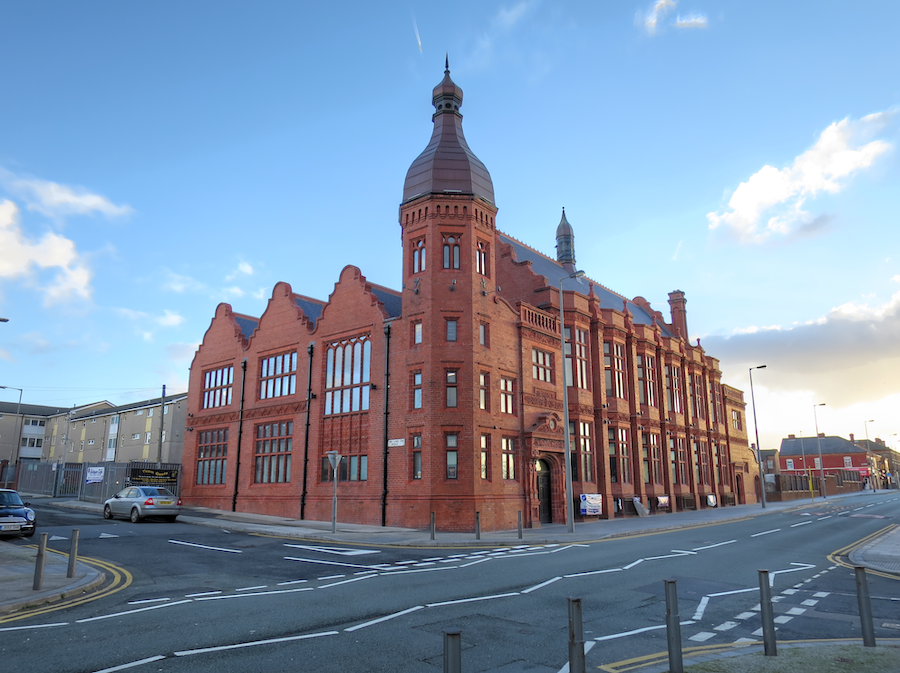Cities / Health and social inequalities
Liverpool citizens’ project redistributes local man’s £100k gift to fight poverty
By Andrew Sansom | 08 Feb 2024 | 0
Four local organisations in a deprived part of Liverpool are sharing a £100,000 philanthropic donation, distributed through an experimental process that aimed to address wealth inequality.
Liverpool-based writer and researcher David Clarke, 33, inherited the sum but felt that he was in a strong enough financial position to give the money away, noting that he wanted to see less inequality in the world.
Aware of an extensive body of work showing how philanthropy, even when it is well-intentioned, can entrench injustice, he decided to embark on his ‘Wealth Shared’ project, recruiting 12 people at random to ask them what should happen to £100k.
Some 600 households in the L8 postcode – ranked as the 37th most deprived constituency in England out of 533 – received letters asking if they wanted to participate. Thirty-eight people responded and 12 were selected, also at random. The group met around a boardroom table in a community centre over June and July last year, to discuss how to make best use of the money, with support from a facilitator.
An evaluation report on the project observes that the approach seemed to work, with participants engaging in a deep and wide-ranging discussion. Although the donations would be one-off, the group wanted the gifts to help deliver a longer-lasting impact that would be sustainable and regenerative. 
Participants also spoke in depth of their awareness of inequality, its impact on people, and the cost of living crisis. Aware of how much local people were struggling, the group highlighted the numbers of homeless people in the area, as well as boarded-up or rundown buildings. They wanted the money to have an impact as quickly as possible to alleviate suffering and offer some hope to the local community.
The participants chose to transfer the money to four organisations working to address the effects of poverty and deprivation in their community:
- The Florrie – a community centre;
- Dingle, Granby and Toxteth Collaborative – a network of local schools;
- Granby Toxteth Development – a community development trust; and
- Team Oasis – a children’s charity.
The evaluation report notes that on receiving the money, headteachers of schools making up the DGT Collaborative said that the money would help improve the life chances of the roughly 1000 children in their care. Regarding the financial pressure on schools, they described instances where they had conducted whip-rounds among staff to subsidise the rising costs of energy, while food banks operating on school premises have seen a surge in demand and the schools are providing extra meals for some children.
A broader movement
Overall, feedback from the participants was positive about their experience. The group embraced the responsibility of making such an important decision of how to distribute the money to make a real impact on people’s lives, and they felt a sense of pride in participating.
The project team also placed the Wealth Shared approach in the context of a wider social and political movement towards greater wealth redistribution. The report points to groups such as Resource Generation, Resource Justice, and the Giving Pledge, which support and encourage people to give away their wealth. Another body, Patriotic Millionaires, advocates increased wealth taxation.
Concludes the report: “In a world in which the dominant trends are towards the accumulation and concentration of wealth in the hands of a minority, it’s sometimes hard to imagine that a different model could materialise. The existence of a cohort of wealthy people giving away their money voluntarily provides a potential starting point for the emergence of a new set of social norms and expectations.”
Clarke reflected: “To anyone who is lucky enough to have more money than they need and is wondering what to do with it, I think this concept – or something like it – is a good solution.”
And Rhodri Davies, founding director of the think tank Why Philanthropy Matters, who sat in on the deliberation sessions and acted as an informal sounding point for the project, commented: “I’m well aware through my own work that in the wider context many critical questions are being asked about philanthropy at the moment. For instance: is it often undemocratic, as it gives those with wealth a disproportionate ability to decide where society’s priorities lie? Do the models we use create uncomfortable power imbalances between donors and recipients? And can philanthropy be part of a meaningful redistribution of wealth?
“The fascinating thing to me about Wealth Shared as a project is that it was trying to address these kinds of questions, and to find at least one practical model for how we might make philanthropy more democratic and equitable.”
Davies and the project team hope that over time, Wealth Shared may inspire others to undertake similar initiatives. The report states: “We believe Wealth Shared is both a practical example of wealth redistribution in action, and an attempt to allocate funds in a way that is truly democratic.”
Organisations involved
